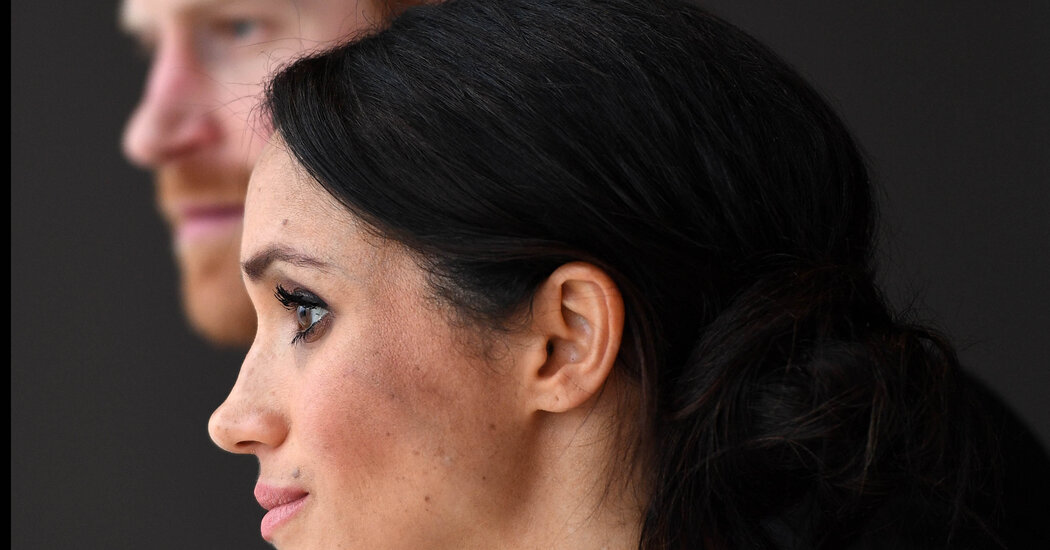
“Harry & Meghan” is interesting if you want nearly six hours of granular information about the Sussexes’ marriage and how their relationship with the royal family fractured irreparably. Though Liz Garbus is credited as director, the Sussexes were clearly in control, at all times. I don’t begrudge them that. For the past several years, they have been subjected to an unprecedented amount of public scrutiny and cruelty, much of it from the merciless British tabloids. It makes sense that for once, they wanted absolute control.
But the problem with wielding that kind of control is that it can work against your own interests. In one of the early episodes, Meghan discusses being biracial and says, “People don’t talk about what it’s like to be mixed race.” I was so perplexed by the statement that I turned on the captions and went back to be sure I heard her correctly. There is a robust and longstanding discourse about being biracial or multiracial. How could she not know that? How could no one protect her from such a wildly inaccurate statement?
Given that there aren’t many grand revelations in “Harry & Megan,” it seems clear that the Sussexes made this project, in large part, because they needed the money. A prince is accustomed to a certain lifestyle. Security details are costly. The mortgage must be paid. Exiled from the royal family, the Sussexes know that their story is, for now, their most valuable asset. When you’ve been misunderstood and maligned, you want nothing more than for people to know the truth as you’ve experienced it. Because you want to be seen and understood, you wrongly assume that if people know every last detail, finally they will empathize with your suffering. Alas.
The British monarchy is an aging institution defined by tradition, delusion, even hubris. However popular royal gossip may be, the monarchy’s power, influence, and relevance are waning. When Harry met Meghan, the royal family had a unique opportunity to evolve and modernize a deeply problematic institution. They could have made it relevant in a diverse and complicated world. While the Commonwealth comprises 56 countries, King Charles reigns as monarch over the United Kingdom and 14 Commonwealth realms, lingering vestiges of British imperialism. The people of the Commonwealth are, as the documentary notes, largely people of color. Here, the royals had a biracial woman joining their ranks. For many Black Britons, Markle was something of a beacon, a sign that the power and reach of the monarchy could extend to them, too.
It’s chilling to realize that racism is so powerful that the royal family would ruin what is for now the one opportunity they were given to reach the hearts and minds of the very people who make their lives possible. They had a gift — in Meghan Markle they had a woman who is intelligent, poised and largely able to live in the public eye, play the role of princess and give the best of herself in service of something bigger than herself.
As if to substantiate the Sussexes allegations, the British broadcaster Jeremy Clarkson unleashed an incoherent, rage-filled rant about Meghan in a column for The Sun. He said, among other things, that he hates her on a “cellular level,” and was “dreaming of the day when she is made to parade naked through the streets of every town in Britain while the crowds chant, ‘Shame!’ and throw lumps of excrement at her.” It’s worth noting that Mr. Clarkson joined the Queen Consort and others for a Christmas lunch days before he penned his vile thoughts. And thus far, the royal family has said nothing about Clarkson’s words. They still refuse to protect her.
In the documentary, Harry and Meghan both say they would have worked on behalf of the monarchy for the rest of their lives if the royal family extended them a modicum of consideration and safety. They wanted the royal family to embrace Meghan’s role in Harry’s life and to use it — to use her — to their advantage. Instead, they did the exact opposite time and time again.








